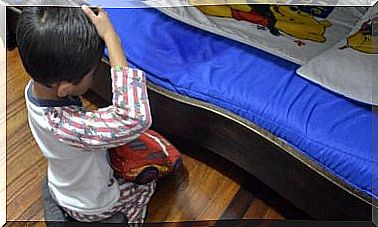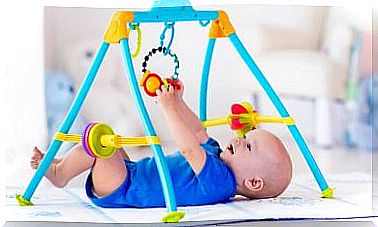How To Tell When Your Teenager Is Exhausted And Stressed

It’s not just adults who can feel exhausted and stressed. Today, teenagers are very stressed, more so than in previous generations. Maybe they don’t have the necessary strategies to handle this kind of situation. This, in turn, causes sadness and even depression.
Signs Your Teen Is Exhausted and Stressed
As a parent, it’s important to pay attention to these warning signs that may indicate that your child is exhausted and stressed. In these cases, it is important to help him deal with these feelings so that he can learn to manage them in the best way possible.
- Insomnia. There’s something going on with your teenager when he doesn’t sleep well at night. Teach your kids to limit screen time with devices before going to bed to ensure they get a good night’s sleep.
- More anxiety. The inability to relax can be extremely frustrating, especially during downtime. If your teenager is often restless and anxious, exhaustion may be the cause.

- Changing eating habits. It can be either overeating or restricting eating. A change in eating habits can mean your teen is feeling emotionally drained. Excessive consumption of unhealthy foods can cause continual mood swings and lead to undesirable behaviors.
- Risky actions. If your teenager is trying drugs or alcohol for the first time, or if you suspect that he or she may be using these substances more often, they may be being used as a way to escape stress.
- Impulsive or emotional behavior. Rather than immediately blaming hormones for mood swings, look a little deeper, as exhaustion may be to blame. If your teenager is experiencing intense periods of anger, frustration, sadness, or other emotions, it’s probably time to talk about stress.
How to Help Exhausted and Stressed Teens
Now that you know some of the characteristics of an exhausted teenager, learning to help is essential to ensuring they start feeling good again. One strategy that works well for many parents is to ask their children if they know anyone in the same class who is showing symptoms of exhaustion.
Address issues with your child this way allows it to respond openly, without fear of what may be a consequence, for example: “I can not tell my mom I’m too tired because I will not be able to use the phone at night.”
Giving your teen a chance to talk about the symptoms and then talking about how he or she would deal with that symptom is the best way to keep them involved without risking them emotionally drifting away.

If your teen admits that a friend is frantically trying to balance home and school life, come up with strategies for dealing with the situation.
Are there activities that can be scaled down? Should he turn off the screens earlier to rest more in order to continue participating in these activities? Has he created a schedule to see how much free time he has or how that time can be better spent?
Rather than overly criticizing your teen for his behavior if he shows any of the above warning signs, use the opportunity to talk about time management, prioritizing, and de-stressing alternatives.
Better manage time for the exhausted and stressed teenager
One of the most important tools parents can use to try to relieve pressure on their teenager is to help them make decisions about how to manage their time. Being a teenager is difficult. There are millions of new experiences and many pressures, plus a very limited amount of life experience in general.
Share the steps necessary to reorganize your life with your children, even if it is telling them what their friend should do and, thus, they will learn to manage their own time without the need to be exhausted. Another possibility is to explain how you do your tasks, as maybe this can help them, in some way, in their daily lives.
Explaining your own examples will bring them closer to you emotionally. That way they will feel understood and accepted. Remember that it is very important not to judge or criticize. Also remember that your children need you to help them, not your being the judge of their lives.









